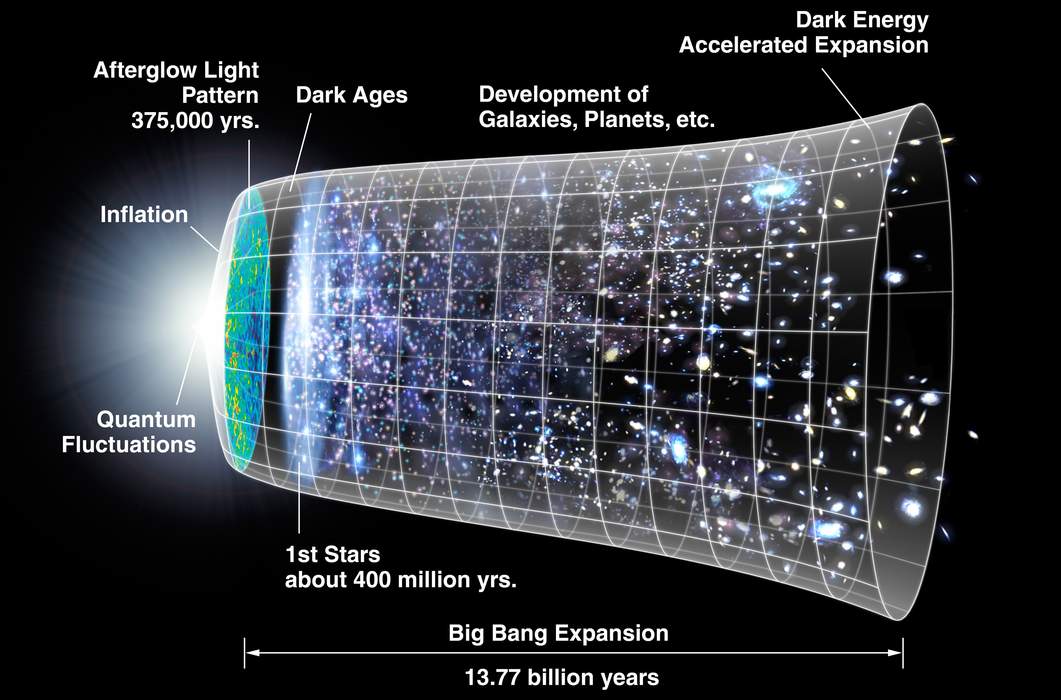
State of the Union: Enlargement nostalgia and new challenges in the EU
This edition of State of the Union focuses on the enlargement "Big Bang" in 2004, speculation about new political alliances after..

The Big Bang is a physical theory that describes how the universe expanded from an initial state of high density and temperature. It was first proposed in 1927 by Roman Catholic priest and physicist Georges Lemaître. Various cosmological models of the Big Bang explain the evolution of the observable universe from the earliest known periods through its subsequent large-scale form. These models offer a comprehensive explanation for a broad range of observed phenomena, including the abundance of light elements, the cosmic microwave background (CMB) radiation, and large-scale structure. The overall uniformity of the universe, known as the flatness problem, is explained through cosmic inflation: a sudden and very rapid expansion of space during the earliest moments. However, physics currently lacks a widely accepted theory of quantum gravity that can successfully model the earliest conditions of the Big Bang.
This edition of State of the Union focuses on the enlargement "Big Bang" in 2004, speculation about new political alliances after..